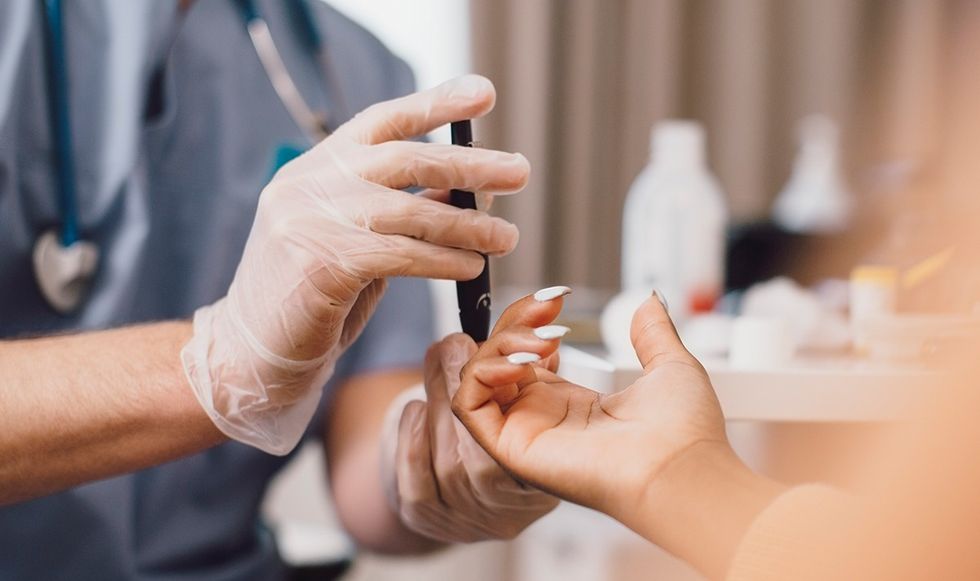Blood sugar hacks: Popular brew linked to 36% drop in signs of insulin resistance - with just two cups a day

Dr Alasdair Scott discusses how to avoid diabetes
|GB News

Researchers observed particularly strong effects in women
Don't Miss
Most Read
New research suggests drinking two cups of black coffee daily could reduce the risk of elevated insulin resistance by 23 per cent.
The study, which analysed Korean health survey data, found particularly strong benefits for women.
Unsurprisingly, black coffee showed better results than coffee with sugar or cream additions.
Coffee is one of the most popular beverages worldwide, though studies have reported mixed results on its health impact.

Researchers have suggested multiple mechanisms behind coffee's anti-diabetes effects
|GETTY
Previous research suggested that each additional cup of coffee might reduce type 2 diabetes risk by 6 per cent, regardless of caffeine content.
However, the mechanisms behind this association have remained unclear until now.
Researchers obtained data from the Korea National Health and Nutrition Examination Survey, analysing 7,453 adults aged 19 to 64.
Participants reported their coffee intake over a 24-hour period, specifying whether they consumed black coffee or coffee with sugar and cream.
Scientists measured insulin resistance using the homeostasis model assessment of insulin resistance (HOMA-IR).
Women who drank two or more cups of coffee daily showed 27 per cent lower HOMA-IR and 30 per cent lower fasting insulin levels.
These benefits increased further with three or more cups, showing 34 per cent and 36 per cent reductions respectively.
The study found these improvements regardless of whether sugar or cream was added.
However, women who drank black coffee specifically showed even better results for insulin resistance and glucose metabolism.
Two cups of black coffee daily were associated with a 36 per cent reduction in both HOMA-IR and fasting insulin levels.
Interestingly, these benefits weren't significant when consumption increased to three or more cups daily.
Researchers found that coffee reduces glucose metabolism markers by improving insulin sensitivity rather than enhancing beta cell function.
LATEST DEVELOPMENTS

Coffee is one of the most popular beverages worldwide
|PA
This aligns with previous studies suggesting multiple mechanisms behind coffee's anti-diabetes effects.
These include the anti-inflammatory and antioxidant properties of caffeine and other coffee compounds.
Reduced glucose absorption and decreased glucose release from the liver may also play roles.
The study is the first to use nationally representative Korean health data to examine coffee's effects on glucose metabolism by coffee type.
Researchers concluded that consuming two or more cups of black coffee per day is inversely associated with insulin resistance in Korean women, with future studies needed to validate these findings.










